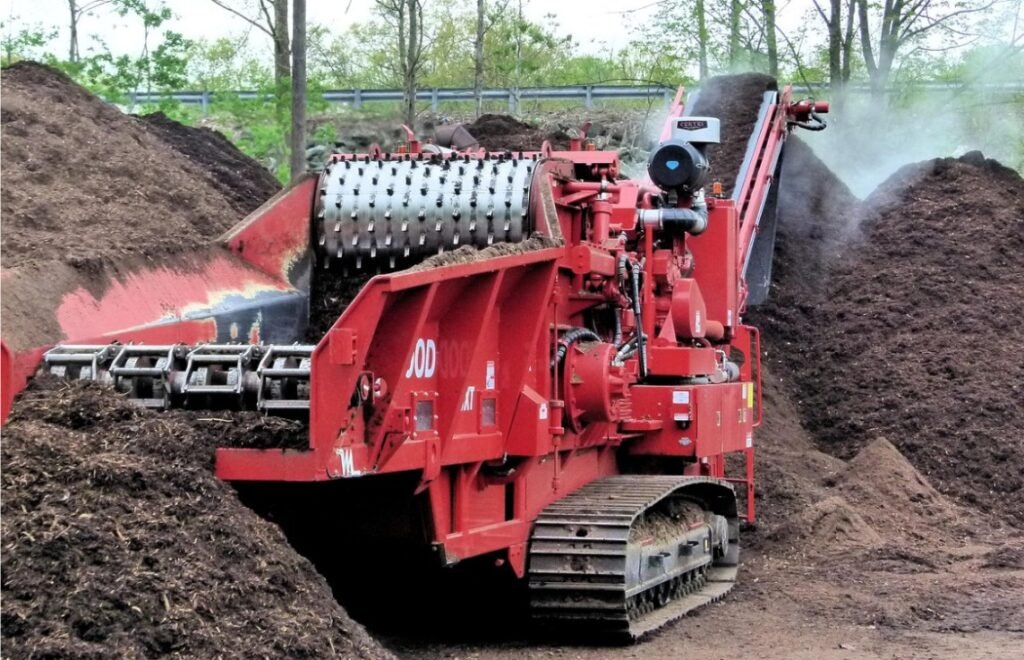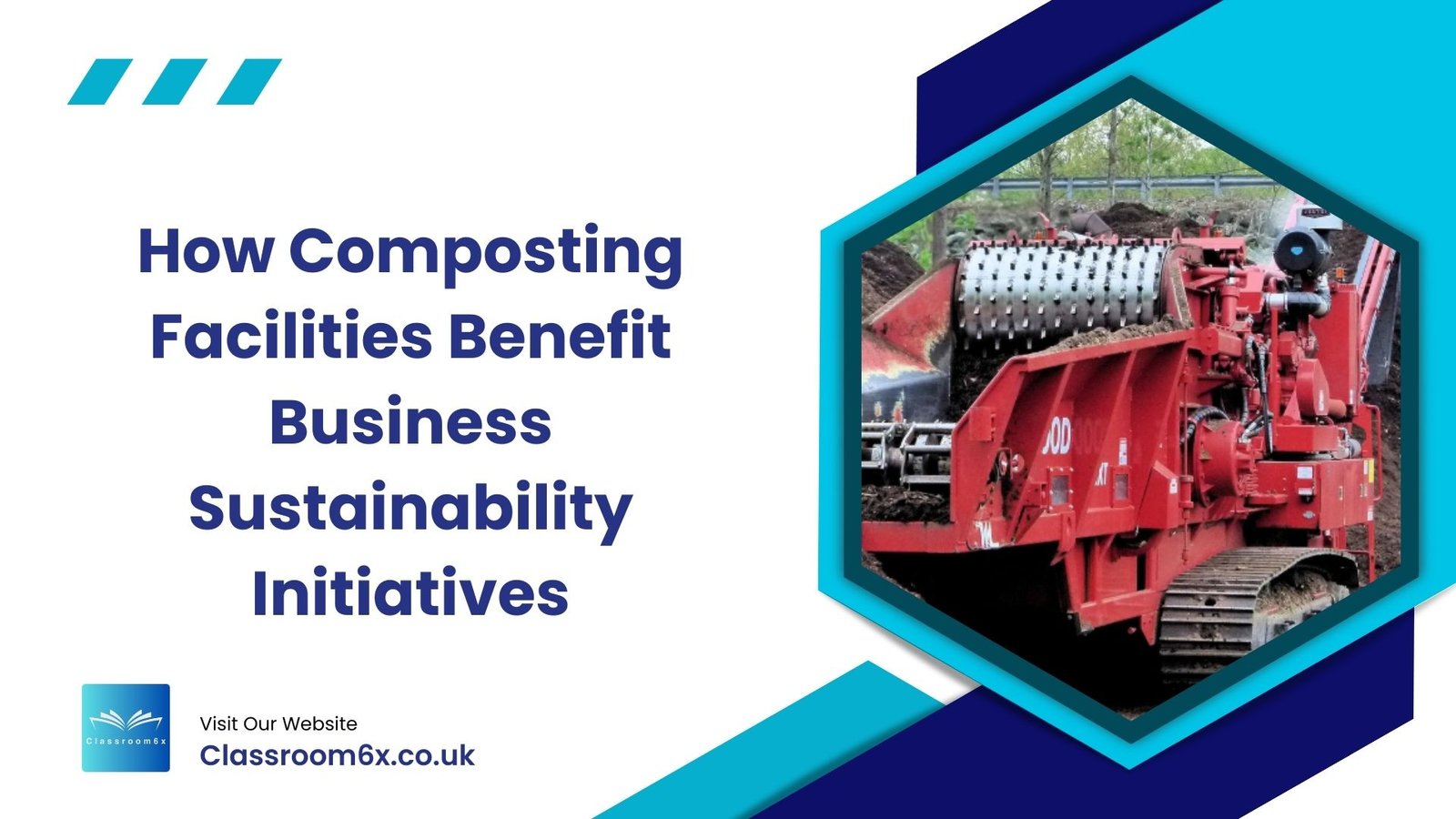
Source: https://pixabay.com/photos/compost-grinder-compost-chipper-3389088/
What methods are you exploring to increase your business’s sustainability?
The answer to your sustainability needs may well be composting. Since only 4% of food waste in the United States goes through composting processes, businesses have a significant chance to lead sustainability advancements by adopting composting programs.
The good news?
Your business can minimize its environmental impact while realizing financial savings and strengthening its eco-friendly brand image through composting initiatives.
Inside This Guide:
- Why Business Composting Matters
- Key Benefits of Composting for Businesses
- Setting Up Your Business Composting Program
- Overcoming Common Composting Challenges
- Case Studies: Businesses Succeeding with Composting
- Future Trends in Commercial Composting
Why Business Composting Matters
Business composting represents more than a green initiative because it functions as an effective waste management solution which improves sustainability metrics for your company.
Businesses need to understand the current composting landscape to set up effective composting facilities. The United States faces a considerable deficiency in its food waste management infrastructure. Food waste composting facilities across the United States process only about 4% of food waste according to information on composting facilities in the US which reveals significant potential for growth in this sector.
The low rate of food waste composting represents lost potential for businesses to benefit through waste management cost reduction and regulatory compliance.
- Reduce waste management costs
- Comply with emerging regulations
- Enhance sustainability reporting metrics
- Improve corporate image
The majority of companies produce organic waste which presents a chance to redirect it away from landfill sites. Every day restaurants along with grocery stores, hotels and office buildings create materials that can be composted. These businesses can convert waste into valuable assets through the implementation of composting programs.
Key Benefits of Composting for Businesses
Implementing a composting program provides multiple benefits that extend past waste minimization.
Reduced Waste Management Costs
Companies face rising costs when using conventional waste disposal methods. Organic waste diversion to composting facilities helps businesses reduce collection fees and pickup frequency resulting in lower waste management expenses.
Organic waste makes up between 50 to 70 percent of total waste streams for food service businesses. By redirecting this material your financial performance will experience significant improvement.
Enhanced Sustainability Metrics
Are you tracking your sustainability performance? Through composting facilities businesses can experience measurable environmental benefits such as lower landfill waste volume, decreased emission levels and specific waste diversion statistics.
Consumers, investors, and business partners who prioritize environmental responsibility find these metrics increasingly critical.
Regulatory Compliance
The rules governing organic waste management are evolving quickly. Beginning in 2020, composting gained legislative support through federal acts like the COMPOST Act and the Zero Food Waste Act along with state-level measures such as California’s SB 1383.
Implementing composting today will allow your business to meet future regulatory requirements in advance.
Improved Corporate Image
Modern consumers prefer companies that actively show their commitment to environmental responsibility. A visible composting program boosts your sustainability narrative while attracting eco-conscious customers and setting your business apart from competitors.
A strengthened corporate image leads to increased customer loyalty and the ability to charge premium prices.
Setting Up Your Business Composting Program
Ready to implement composting at your business? Here’s how to get started:
1. Assess Your Waste Stream
Conduct a waste audit to identify both the types and amounts of organic waste produced by your business. The assessment will establish both the size of your program and your collection requirements.
2. Find Local Composting Facilities
Identify available composting solutions nearby by looking into commercial options, municipal services and potential on-site methods.
Good news: During the period from 2020 to 2023 the number of composting facilities accepting food waste grew by 14 new facilities. Despite possessing extra capacity many facilities struggle to maintain quality because of contamination problems.
3. Implement Collection Systems
Position clearly marked containers in accessible areas and provide compostable bags along with instructional visuals to show which items can go into the compost. Your program will achieve better success if you simplify people’s participation process.
4. Train Staff and Communicate
Educate all staff members about correct sorting methods and explain the advantages of the program while delivering ongoing success reports. Appoint dedicated individuals as “compost champions” to sustain program enthusiasm and ensure correct participation.
Overcoming Common Composting Challenges
Despite the multiple advantages of composting programs businesses face several typical challenges during implementation.
Contamination Concerns
Out of the facilities surveyed, almost half of them have rigorous contamination policies and 45 facilities maintain a zero tolerance policy. Implement clear signage featuring images alongside routine training sessions and periodic inspections of collection bins to reduce contamination rates.
Space Limitations
Businesses that operate in limited spaces should choose stackable collection bins and frequent pickups while considering shared composting programs with other nearby businesses.
Cost Considerations
The implementation of comprehensive organics diversion policies requires an estimated $20.9 billion expenditure by 2030 but promises to deliver $17 billion in economic benefits.
Begin by implementing a pilot program and research haulers who provide discounts for separated waste followed by an examination of local incentives.
Odor Management
To manage potential odors it is effective to use enclosed containers while ensuring regular waste collection during hot months and situating disposal areas in low-traffic locations.
Case Studies: Businesses Succeeding with Composting
Looking for proof that business composting works? Consider these success stories:
Major Hotel Chain Reduces Waste by 60%
The hotel chain launched a full-scale composting program in 12 of its locations and achieved significant results.
- 60% reduction in landfill waste
- $45,000 annual savings in waste disposal fees
- Enhanced guest satisfaction scores
The key to their success? The hotel achieved success through both staff training and clear signage for housekeeping and food service teams.
Restaurant Group Transforms Food Waste
A regional restaurant group operating 15 locations began a food waste composting initiative.
- Reduced trash collection needs by 70%
- Saved approximately $35,000 annually in disposal costs
- Local farmers built relationships through their use of the restaurant’s compost.
The plan of action required kitchen staff to separate food scraps in preparation stages and ensured correct sorting of waste after consumption.
Future Trends in Commercial Composting
The business composting sector remains in constant development and transformation. Here are key trends to watch:
Expanding Infrastructure
The nationwide infrastructure for composting services grows to meet rising demand by adding new commercial facilities and establishing innovative collection services coupled with specialized equipment for on-site composting.
The extension of composting facilities enables businesses of every scale to access these services more easily.
Technological Advances
The commercial composting industry is undergoing significant changes through the introduction of smart bins which detect contamination alongside mobile applications for metric tracking and enhanced processing techniques that handle broader material types.
Policy Support
More municipalities now require organic waste diversion while providing tax incentives and industry-specific regulations to support the composting industry.
Businesses that understand regulatory trends are initiating programs now to stay ahead of upcoming changes.
Wrapping It All Up
Businesses need to adopt composting because it has become essential to their operation. The examination demonstrates that composting facilities designed for businesses yield numerous advantages.
- Cost savings through reduced waste disposal
- Regulatory compliance with current and future laws
- Enhanced brand image and customer loyalty
- Measurable sustainability metrics for reporting
Businesses that establish efficient composting systems now will gain a competitive advantage because merely 4% of food waste in the US is presently composted.
Getting started doesn’t have to be complicated. Start by conducting a waste audit then establish connections with nearby composting facilities followed by installation of an uncomplicated collection system before training your staff.
Ready to transform your business’s sustainability profile? Starting with composting could be the most effective initial step.





